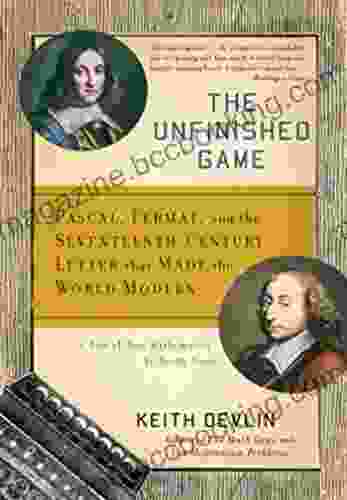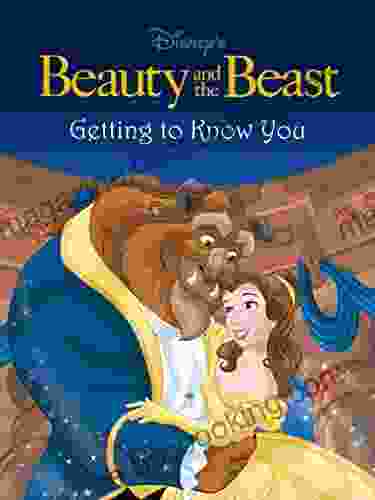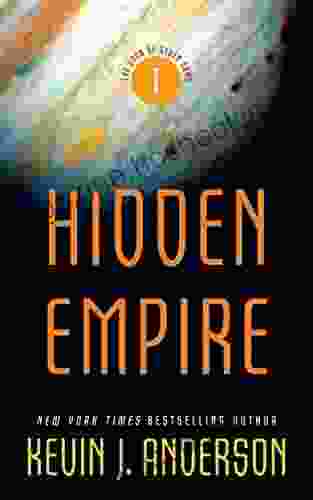Pascal, Fermat, and the Seventeenth-Century Letter that Made the World Modern

4.4 out of 5
| Language | : | English |
| File size | : | 516 KB |
| Text-to-Speech | : | Enabled |
| Screen Reader | : | Supported |
| Enhanced typesetting | : | Enabled |
| Word Wise | : | Enabled |
| Print length | : | 210 pages |
In the annals of mathematical history, the correspondence between French mathematician Blaise Pascal and his colleague Pierre de Fermat stands as a pivotal moment. Their exchange of letters in the mid-17th century marked a profound shift in our understanding of probability, calculus, and the very nature of modern thought.
Pascal's and Fermat's revolutionary letter, written in 1654, is a cornerstone in the development of the theory of probability. It laid the foundation for a new field of study that would enable us to quantify and understand the likelihood of events, forever changing the way we make decisions and navigate our world.
Beyond probability, their letter also contained groundbreaking insights into the nascent field of calculus. Pascal and Fermat's ideas on the concept of infinitesimals, the building blocks of calculus, paved the way for the development of differential and integral calculus, essential tools in science and engineering.
This letter was not merely a mathematical treatise; it also represented a broader intellectual shift. It reflected a new spirit of inquiry and a willingness to challenge established norms and embrace new ideas that would shape the modern world. Pascal and Fermat's work is a testament to the power of human curiosity and the transformative potential of collaboration.
The Historical Context
The 17th century was a period of intellectual ferment and scientific revolution. The Renaissance had sparked a renewed interest in the classical world and its writings, leading to a revival of learning and a fascination with the natural world. This spirit of inquiry was particularly evident in mathematics, where scholars were eagerly seeking new approaches to solve complex problems.
Blaise Pascal was born in Clermont-Ferrand, France, in 1623. From a young age, he displayed an extraordinary aptitude for mathematics. By the age of 16, he had written a treatise on conic sections, showcasing his precocious talent. Pierre de Fermat, born a few years earlier in 1607 in Beaumont-de-Lomagne, France, was another mathematical prodigy. Despite pursuing a career in law, he maintained a deep passion for mathematics and became renowned for his work in number theory.
Pascal and Fermat lived in a time of intense intellectual exchange, marked by the rise of scientific societies and the circulation of ideas through correspondence. Their exchange of letters in 1654 was a pivotal event in this vibrant intellectual landscape.
The Groundbreaking Letter
In 1654, a problem arose that sparked the exchange between Pascal and Fermat: the "problem of points." This problem involved determining the fair distribution of winnings to players in a game that was interrupted before its completion.
Pascal's interest in the problem was driven by his preoccupation with gambling. He saw it as an opportunity to apply mathematical reasoning to the realm of chance. Fermat, always keen to engage with complex mathematical challenges, was eager to collaborate on a solution.
Their exchange of letters unfolded over several months, with each mathematician presenting their ideas and refining them through critique and discussion. Their correspondence reveals a dynamic intellectual partnership, where each man pushed the boundaries of the other's thinking.
In their letter, Pascal and Fermat developed the concept of probability as a mathematical quantity that could be measured and calculated. They introduced the idea of a "sample space," the set of all possible outcomes of an event, and the concept of "favorable outcomes," the subset of outcomes that satisfy a given condition.
Through their analysis, Pascal and Fermat discovered the fundamental principle of probability: the probability of an event is the ratio of the number of favorable outcomes to the total number of possible outcomes. This principle became the cornerstone of probability theory, a field that today finds applications in countless areas, from finance and insurance to medicine and social science.
Beyond Probability
While probability was undoubtedly the central focus of their letter, Pascal and Fermat's insights extended beyond this field. Their exploration of the problem of points also led them to grapple with the concept of infinitesimals, a precursor to modern calculus.
In their analysis, they discovered that the sum of an infinite series of infinitesimally small quantities could produce a finite result. This idea was a radical departure from traditional mathematical thinking and laid the foundation for the development of calculus.
Calculus, with its powerful tools of differentiation and integration, has revolutionized the study of motion, the behavior of fluids, and countless other phenomena. Its applications span a vast range of fields, including physics, engineering, economics, and biology.
Pascal and Fermat's work on infinitesimals was not without its critics. Some mathematicians, skeptical of the validity of such an abstract concept, resisted its adoption. However, the power and versatility of calculus eventually prevailed, and it became an indispensable tool in the mathematical toolkit.
The Legacy of Pascal and Fermat
The impact of Pascal and Fermat's groundbreaking letter cannot be overstated. Their work on probability and calculus formed the foundation of modern mathematics, opening up new avenues of scientific inquiry and technological innovation.
Beyond their mathematical contributions, Pascal and Fermat's correspondence is a testament to the transformative power of collaboration and open-minded inquiry. Their willingness to challenge established norms and embrace new ideas paved the way for future scientific breakthroughs.
The legacy of Pascal and Fermat continues to inspire generations of mathematicians and scientists. Their groundbreaking letter stands as a reminder of the immense power of human reason and the enduring importance of intellectual exchange.
"Pascal, Fermat, and the Seventeenth-Century Letter that Made the World Modern" is a captivating and illuminating account of a pivotal moment in intellectual history. Through the lens of their groundbreaking correspondence, we gain a deep appreciation for the genius of these two mathematicians and the profound impact they had on the development of modern thought.
This book is an essential read for anyone interested in the history of science, the development of mathematics, or the enduring power of human curiosity. Pascal and Fermat's legacy continues to inspire and challenge us, reminding us of the transformative potential of collaboration and open-minded inquiry.
4.4 out of 5
| Language | : | English |
| File size | : | 516 KB |
| Text-to-Speech | : | Enabled |
| Screen Reader | : | Supported |
| Enhanced typesetting | : | Enabled |
| Word Wise | : | Enabled |
| Print length | : | 210 pages |
Do you want to contribute by writing guest posts on this blog?
Please contact us and send us a resume of previous articles that you have written.
 Book
Book Novel
Novel Page
Page Chapter
Chapter Text
Text Story
Story Genre
Genre Reader
Reader Library
Library Paperback
Paperback E-book
E-book Magazine
Magazine Newspaper
Newspaper Paragraph
Paragraph Sentence
Sentence Bookmark
Bookmark Shelf
Shelf Glossary
Glossary Bibliography
Bibliography Foreword
Foreword Preface
Preface Synopsis
Synopsis Annotation
Annotation Footnote
Footnote Manuscript
Manuscript Scroll
Scroll Codex
Codex Tome
Tome Bestseller
Bestseller Classics
Classics Library card
Library card Narrative
Narrative Biography
Biography Autobiography
Autobiography Memoir
Memoir Reference
Reference Encyclopedia
Encyclopedia Walter Makichen
Walter Makichen Kelly Treleaven
Kelly Treleaven Nadria Tucker
Nadria Tucker Shena Newberry Wilder
Shena Newberry Wilder Ralph H Hruban
Ralph H Hruban Kathy Campitelli
Kathy Campitelli Kim Harrison
Kim Harrison Kenneth Jeffrey Marshall
Kenneth Jeffrey Marshall Marco Saba
Marco Saba Kevin Powell
Kevin Powell Norrinda Brown Hayat
Norrinda Brown Hayat Kevin Hartman
Kevin Hartman Rebecca Trotter
Rebecca Trotter Kevin Richardson
Kevin Richardson Ken Gagne
Ken Gagne Khuram Malik
Khuram Malik Nigel Cawthorne
Nigel Cawthorne Michelle Damiani
Michelle Damiani R M Arcejaeger
R M Arcejaeger Robert Weintraub
Robert Weintraub
Light bulbAdvertise smarter! Our strategic ad space ensures maximum exposure. Reserve your spot today!

 Russell MitchellMaster The Civil Service Exams: A Comprehensive Guide to Achieving Success
Russell MitchellMaster The Civil Service Exams: A Comprehensive Guide to Achieving Success Raymond ParkerFollow ·19.6k
Raymond ParkerFollow ·19.6k Mario Vargas LlosaFollow ·18.4k
Mario Vargas LlosaFollow ·18.4k Gage HayesFollow ·19.4k
Gage HayesFollow ·19.4k Bryce FosterFollow ·16.1k
Bryce FosterFollow ·16.1k Billy PetersonFollow ·12.8k
Billy PetersonFollow ·12.8k Anton ChekhovFollow ·17.4k
Anton ChekhovFollow ·17.4k Benjamin StoneFollow ·16.1k
Benjamin StoneFollow ·16.1k Dillon HayesFollow ·10.1k
Dillon HayesFollow ·10.1k

 Joshua Reed
Joshua ReedUnveiling the Profound Essence of Taekwondo: Spirit and...
Taekwondo, an ancient...
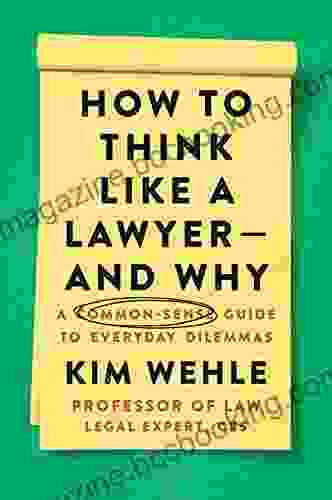
 Clarence Brooks
Clarence BrooksUnveiling Clarity: The Common Sense Guide to Everyday...
In the labyrinthine world of legal...
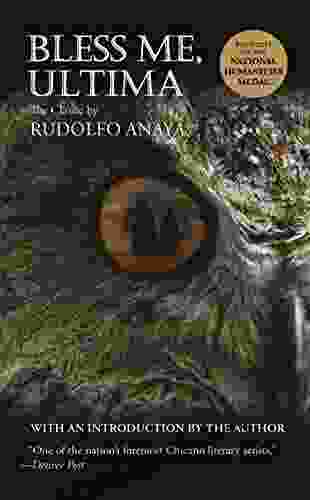
 Anthony Wells
Anthony WellsBless Me, Ultima: A Literary Odyssey into the Heart of...
In the tapestry of American literature,...

 Alexandre Dumas
Alexandre DumasPioneer Life Or Thirty Years A Hunter - A Captivating...
Discover the Raw and...

 Samuel Beckett
Samuel BeckettThe Mike Fisher Story: An Inspiring Tale of Faith,...
Prepare to be...
4.4 out of 5
| Language | : | English |
| File size | : | 516 KB |
| Text-to-Speech | : | Enabled |
| Screen Reader | : | Supported |
| Enhanced typesetting | : | Enabled |
| Word Wise | : | Enabled |
| Print length | : | 210 pages |


